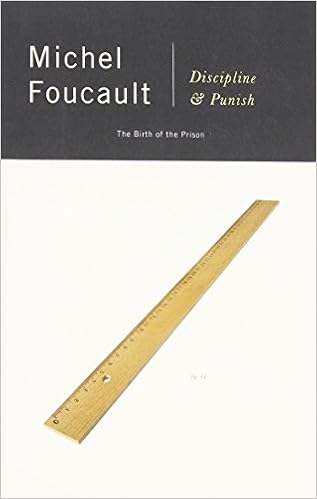The book is, generally speaking, about the development of penal systems in the Western world, from the tortures and executions as public spectacles to the modern prison and its subtle counterparts in other institutions such as the school.
It is quite noteworthy that Focault discusses penal systems - or means of discipline and punishment - both in their explicit and implicit manifestations. An example of the former is the prison whereas the contemporary school system with institutionalized procedures, physical arrangements (think about the stereotypical arrangement of a non-progressive classroom), exams and grades exemplify the latter.
Was it good?
First, even without knowing the identity of the author, it would be quite safe to guess that the book was written by a French sociologist; the treatment is often quite elaborate (I hesitate to say obscure), and the language used impregnated by "big words". Some of this, however, may be attributable to translation.
In any event, I found the very beginning (the medieval idea of punishment) and the very end of the book (structurally embedded subtle discipline and punishment in the contemporary Western world) quite engaging. In contrast, the quite nuanced travel from the former to the latter could - for my taste - have been presented in a more straightforward manner.
Thus, my overall impression of the book was somewhat mixed.
The main take-away for me?
By far the clearest take-away for me was Focault's insightful treatment of "discpline as structure" (my expression). That is, in modern world, we are surrounded by a host of quite "invisible" means of discipline which are so institutionalized that we have often become blind to them.
Think about, for example, various information systems which require one to fill in specific details in order to have something accomplished, whereby the information system forces one to submit to its coercive structuration in order to have something accomplished. Or think about the various ways one is evaluated and ranked: often measures for doing this are "system-provided" which do not take into account individual idiosyncrasies or contextual differences, let alone personal preferences. Yet, one must conform to these institutional practices in order to "perform" in the modern society. Perhaps the school is the clearest example of such phenomena, though the workplace often has comparable characteristics (c.f. e.g., time cards, budgeting, performance appraisals etc.).
After having read the book, I certainly am more attuned to observing my daily life from this perspective.
Who should read the book?
As a whole, I wouldn't recommend the book for a casual reader - the language is not very accessible, and apart from the very beginning and end, the book can be quite laborious to plow through. However, if one is into French sociology (or philosophy), the book is probably quite a good fit, though in such a case one probably has read it (or some corresponding work) already.
The book on Amazon.com: Discipline and punish

No comments:
Post a Comment